Animal Pharmacology
The study of pharmacological characteristics and all elements of their interaction with living beings is referred to as veterinary pharmacology. Any chemical agent (other than food) used in the treatment, cure, prevention, or diagnosis of disease, or in the management of physiological processes, is referred to as a drug. The knowledge and methods of many related clinical and non-clinical disciplines, including biology, chemistry, biochemistry, toxicology, physiology, pathology, and medicine, are used in pharmacology. The experimental science of veterinary pharmacology is concerned with the characteristics of medications and their impact on living organisms. It has included research into drug sources (pharmacognosy), the magnitude and time course of the observed pharmacological effect on the body pharmacodynamics (PD), the relationship between administered doses, the observed biological fluid/tissue concentrations of the drug, and time in the body pharmacokinetics (PK), and the use of drugs in the treatment of diseases.
- Adverse Drug Reactions
- Drug Development
- Pharmacodynamics
- Pharmacogenetics
- Pharmacognosy
- Pharmacokinetics
- Toxicity Tests on Animals
- Toxicology
- Vaccines
- Veterinary Medicines

Marco Polettini
DVM, Italy
Andreia Freitas
INIAV/REQUIMTE, Portugal
Andreia Freitas
INIAV/REQUIMTE, Portugal
Kedibone Gloria Kgosana
Sefako Makgatho Health Sciences University, South Africa
Nnenna Ugwu
Anglia Ruskin University, United Kingdom
Rubens Dias de Melo Junior
Universidade Federal de Goiás, BrazilSubmit your abstract Today
Important Alert:
X


Title : Analyzing veterinary medicine residues in food: A comprehensive guide
Andreia Freitas, INIAV/REQUIMTE, Portugal
Title : Quantifying changes in facial expression following hot-iron disbudding under procaine hydrochloride and meloxicam treatment in Holstein dairy calves
Nnenna Ugwu, Anglia Ruskin University, United Kingdom
Title : Trypanosoma vivax in and outside cattle blood: Parasitological, molecular, and serological detection, reservoir tissues, histopathological lesions, and vertical transmission evaluation
Rubens Dias de Melo Junior, Universidade Federal de Goiás, Brazil
Title : Characterization of porcine rotaviruses in the Czech Republic
Romana Moutelikova, Veterinary Research Institute, Czech Republic
Title : Determination of Circulating Foot-and-Mouth Disease Virus Serotypes in Kenya (2023)
Hellen Mutua, Foot and Mouth Disease National Reference Laboratories, Kenya
Title : Welfare for Amazonian wild animals
Eliane Cardoso Carvalho Moraes, Jungle Warfare Training Center/ Army, Brazil